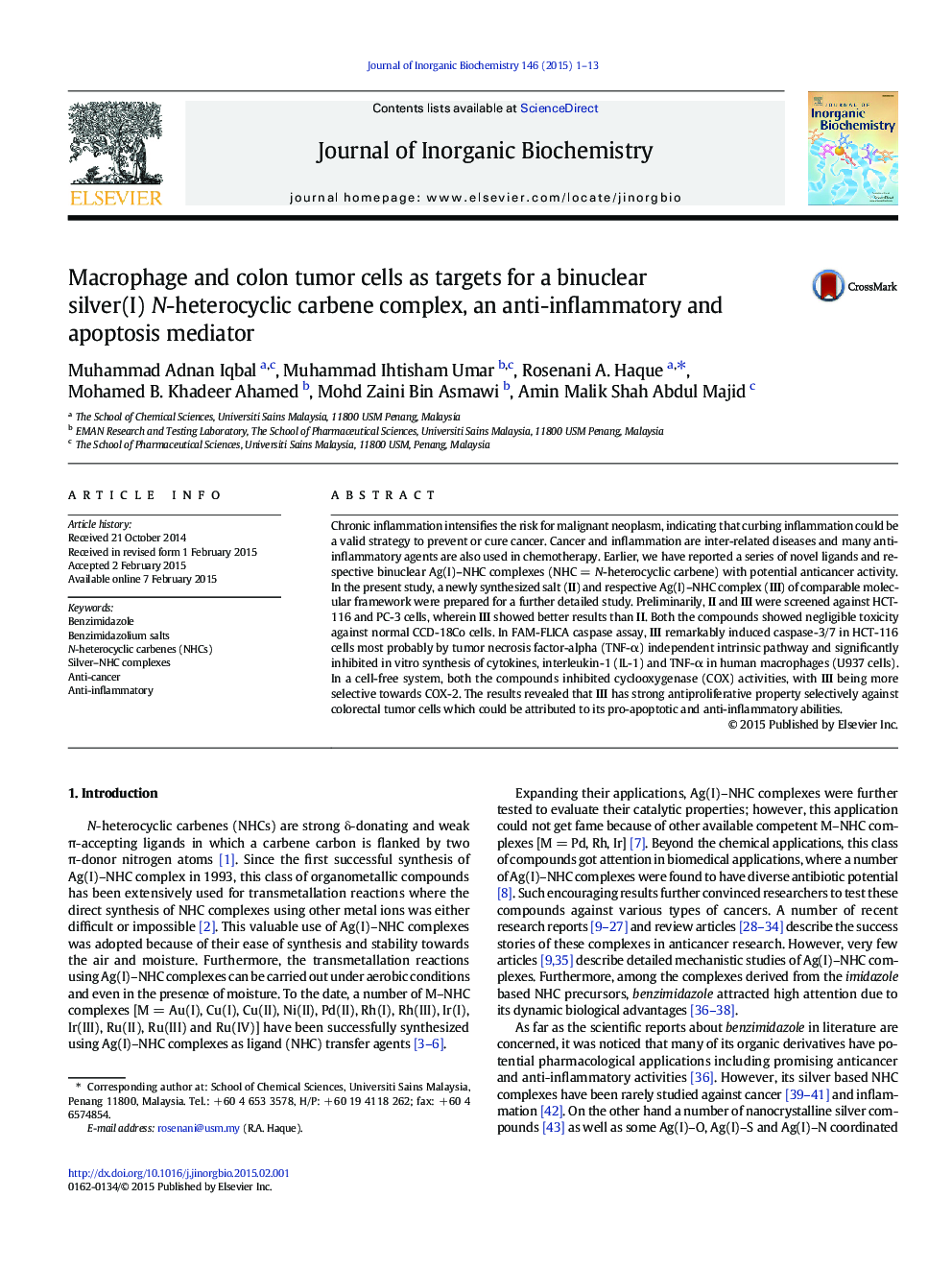| Article ID | Journal | Published Year | Pages | File Type |
|---|---|---|---|---|
| 1316106 | Journal of Inorganic Biochemistry | 2015 | 13 Pages |
•Binuclear silver(I) N-heterocyclic carbene complex (III) was synthesized.•III induced significant cytotoxicity in cancer cells compared to the normal cells.•III inhibited synthesis of cytokines, IL-1 and TNF-α.•III remarkably induced caspase-3/7 in HCT-116 cells and inhibited COX activities.•III has pro-apoptotic and anti-inflammatory abilities.
Chronic inflammation intensifies the risk for malignant neoplasm, indicating that curbing inflammation could be a valid strategy to prevent or cure cancer. Cancer and inflammation are inter-related diseases and many anti-inflammatory agents are also used in chemotherapy. Earlier, we have reported a series of novel ligands and respective binuclear Ag(I)–NHC complexes (NHC = N-heterocyclic carbene) with potential anticancer activity. In the present study, a newly synthesized salt (II) and respective Ag(I)–NHC complex (III) of comparable molecular framework were prepared for a further detailed study. Preliminarily, II and III were screened against HCT-116 and PC-3 cells, wherein III showed better results than II. Both the compounds showed negligible toxicity against normal CCD-18Co cells. In FAM-FLICA caspase assay, III remarkably induced caspase-3/7 in HCT-116 cells most probably by tumor necrosis factor-alpha (TNF-α) independent intrinsic pathway and significantly inhibited in vitro synthesis of cytokines, interleukin-1 (IL-1) and TNF-α in human macrophages (U937 cells). In a cell-free system, both the compounds inhibited cyclooxygenase (COX) activities, with III being more selective towards COX-2. The results revealed that III has strong antiproliferative property selectively against colorectal tumor cells which could be attributed to its pro-apoptotic and anti-inflammatory abilities.
Graphical abstractCancer and inflammation are inter-related diseases. So a new binuclear Ag(I)-N-heterocyclic carbene complex III was tested for its possible anticancer and anti-inflammatory mode of actions. The complex induced apoptosis in human colon cancer cells and inhibited the synthesis of cytokines and cyclooxygenase activities of inflammation pathways.Figure optionsDownload full-size imageDownload as PowerPoint slide
